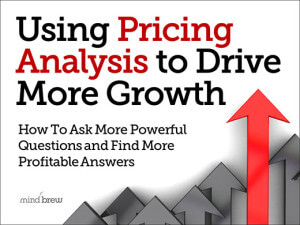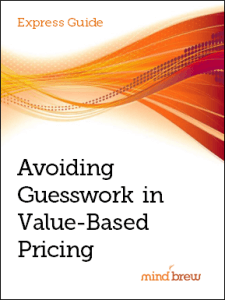Lately, I’ve been seeing quite a few job postings looking for “pricing analysts.” And of course, I think this is a wonderful thing!
That said, however, I can’t help noticing that a lot of the job descriptions don’t seem to match the job title very well.
I mean, they say they’re looking for an analyst, right? But when they describe the expected duties, it’s all about compiling the data, cleaning the data, finding out what data others want to see, creating and delivering reports, and so on.
To me, many of these postings seem to be describing a “reporting” position rather than an “analysis” position.
Just semantics, you say? A distinction without a difference?
Certainly, reporting and analysis are related. After all, they are both dealing with copious amounts of data. And in most cases, an analyst role will also encompass a variety of reporting duties.
But there are significant differences between reporting and analysis:
- Interpretation — What’s happening? — Reporting is about compiling and presenting data for others to interpret. In sharp contrast, analysis is about interpreting the data and telling others what it all means.
- Judgement — Is it good or bad? — With reporting, qualitative assessments are generally left to others. An analyst, however, will use their knowledge to make judgements as to what’s good, bad, normal, anomalous, etc.
- Diagnosis — Why is it happening? — Here again, reporting will leave it to others to guess about causation. But rigorous analysis will narrow the list of potential root-causes and highlight the most likely culprits.
- Prescription — What do we do about it? — Numbers in a sales report can’t tell you what actions to take next. But an analyst with a solid grasp of the performance variables can make sound recommendations.
To simplify things a bit, I think of reporting as “delivering data” while analysis is all about “delivering answers.” And speaking of answers brings to mind another important difference to add to the list:
- Proactivity — What answers do we need? — Generally speaking, reporting is reactive, in that it provides others with the data they’re asking to see. But the best analysts are much more proactive, in that they strive to answer the most important questions…even if no one else is asking them!
Now I don’t think I’m being overly pedantic here. And to my mind, it’s not just a matter of semantics.
Pricing reporting and pricing analysis are indeed distinctly different practices. The mindset is different. The skillsets are different. The expectations are different. The methods and processes are different. The deliverables are different.
And as a result, the outcomes will be very different as well.
PS: It’s been a while since I’ve looked at salary benchmarks, but I would expect an “analyst” title to be pegged to a higher salary than a “reporting” title. So it could very well be that some companies are paying analyst wages for reporting work! That can be our little secret, eh? 🙂
















